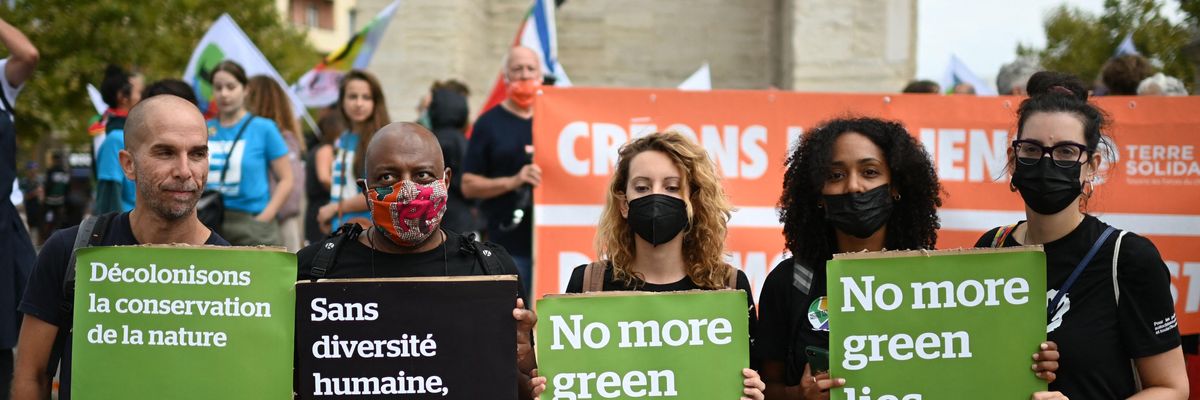Of the 138,374 species assessed by the International Union for the Conservation of Nature (IUCN) for its survival watchlist more than 38,000 are now at risk of extinction, as the destructive impact of human activity on our planet deepens.
An update of the 'Red List of Threatened Species' was released Saturday morning.
Efforts to halt extensive declines in numbers and diversity of animals and plants have largely failed.
In 2019 the UN's biodiversity experts warned that more than a million species are on the brink of extinction - raising the specter that the planet is on the verge of its sixth mass extinction event in 500 million years.
"It's hard to read the headlines, floods, fires, famines, plagues and tell your children that everything is all right. It's not all right. Damn it, it's not all right."
"The red list status shows that we're on the cusp of the sixth extinction event," the IUCN's Head of Red List Unit Craig Hilton-Taylor told Agence France Presse on the eve of the congress.
"If the trends carry on going upward at that rate, we'll be facing a major crisis soon."
On Thursday, a group of human rights NGOs, including Survival International, Attac and Minority Rights Group, held a counter-summit presenting their alternative vision.
Climate Home News reported: "They denounced calls for governments to protect at least 30% of the planet's land by 2030 - up from a previous target of around 17% - as a "false solution" which risks pushing local communities off their land and diverts attention away from the over-consumption and exploitation of natural resources, which they say is the root cause of the climate and biodiversity crisis."
Fiore Longo, of Survival International, told Climate Home News that expanding protected areas was "terrible from a human rights perspective" and could lead to one of the biggest land grabs in history.
The main message from the IUCN World Conservation Congress, which opened Friday in Marseille, France, is that disappearing species and the destruction of ecosystems are no less existential threats than global warming.
At the same time, climate change itself is casting a darker shadow than ever before on the futures of many species.
Habitat loss, overexploitation and illegal trade have hammered global wildlife populations, but scientists say they are increasingly worried about the looming threats of climate change.
Actor Harrison Ford made an impassioned plea to safeguard biodiversity at the opening of the Congress on Friday.
"It's hard to watch the rise of nationalism in the face of a global threat that requires global cooperation, global action," he said. "It's hard to read the headlines, floods, fires, famines, plagues and tell your children that everything is all right. It's not all right. Damn it, it's not all right."
"C'mon everybody," he said. "Let's get to work."
The Marseille conference runs from Sept. 3-11. Among topics are the links between climate change and biodiversity loss, and the ethics of genetic enhancement to increase species' chances of survival. The talks are meant to inform COP26, the U.N.'s global climate summit, which will be held from November 1-12, 2021 in Glasgow, Scotland.

